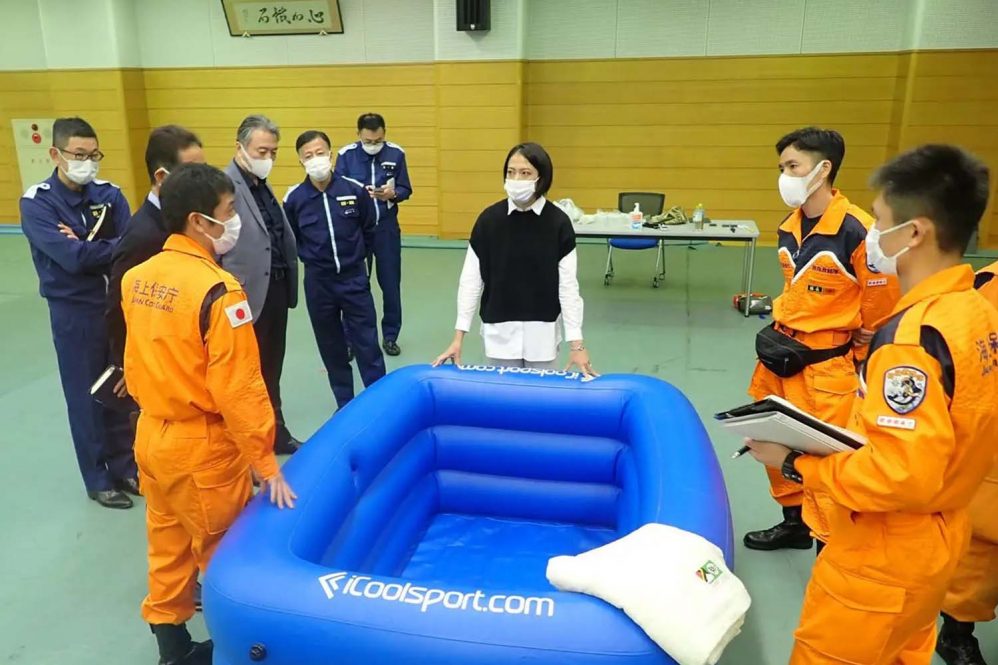In a game, the winning team gets a trophy or bragging rights. In a rescue situation, the winning team completes the mission and comes home alive,” says Yuri Hosokawa ’16 (CAHNR).
Hosokawa has dedicated her relatively short career to preventing heat-related deaths in athletics, notably as a key liaison between the International Olympic Committee and local athletic trainers at the Tokyo 2020 games. Now she’s set her sights on bringing the same knowledge to the Japan Coast Guard.
Hosokawa was pleasantly surprised when an officer from the Japan Coast Guard approached her at a 2018 lecture intended for other academics and exercise scientists. He wanted to find a way to help his staff at the 5th Regional Base tap into her cutting-edge research on exertional heat illness.
“Treating members of the military like elite athletes is more common in the U.S., but that standard of care isn’t happening on a global scale,” she says. “It should be, but it’s not. This was a big opportunity to make change.”
Hosokawa had some experience working with other tactical athletes during her time at UConn’s Korey Stringer Institute (KSI), but she knew the partnership she was about to embark on would be forging new ground in her home country of Japan, where athletic training isn’t considered a medical qualification. She learned to take the leap and try something new from her academic advisor and mentor, kinesiology professor and KSI CEO Douglas Casa ’97 Ph.D. “He’s always looking for that new spark, a way to connect A and B even when that seems impossible. I took that philosophy with me.”
So Hosokawa started work with her new team. Accepting the harsh realities of marine emergencies was the first step. “It’s that old saying — expect the best, plan for the worst,” she explains. “For athletes, there are fewer unexpected variables when it comes to how we optimize performance so they can be their best.” Natural elements, extreme conditions, and other hazards play a major role for rescue organizations, and the Japan Coast Guard was no different. “They have no idea what they’ll face or for how long. They may be out on the ocean for days and they’re always fighting nature. They don’t have a set of rules to play their ‘game.’”



